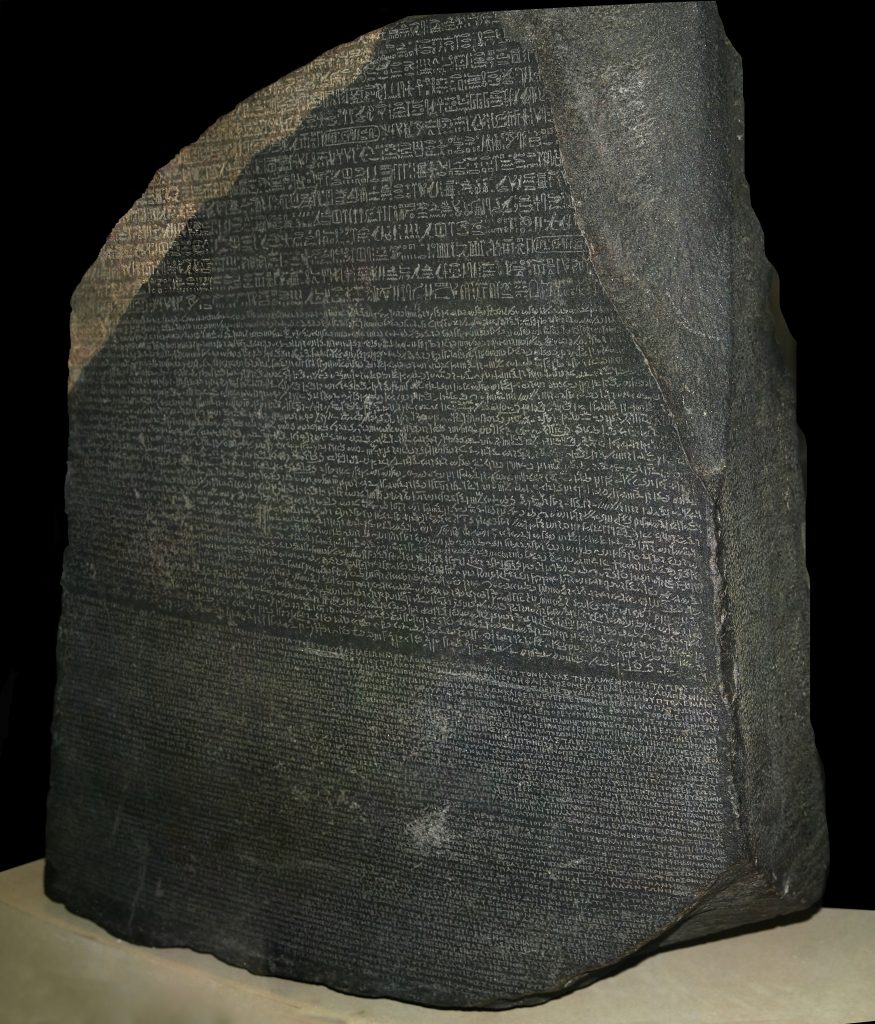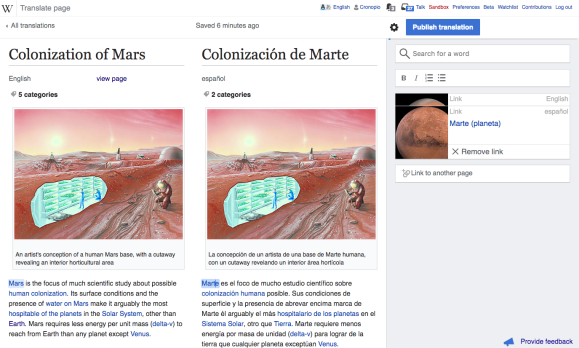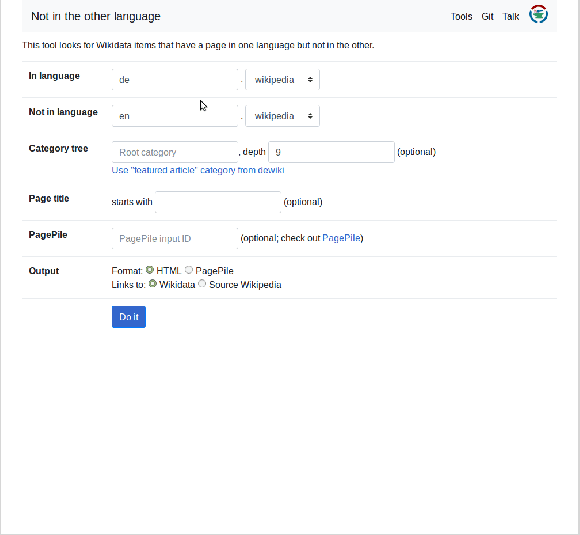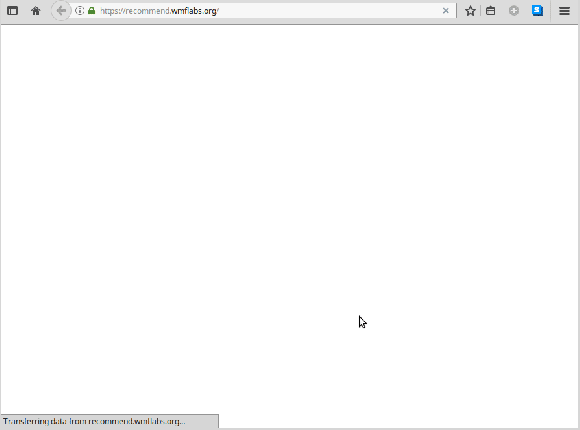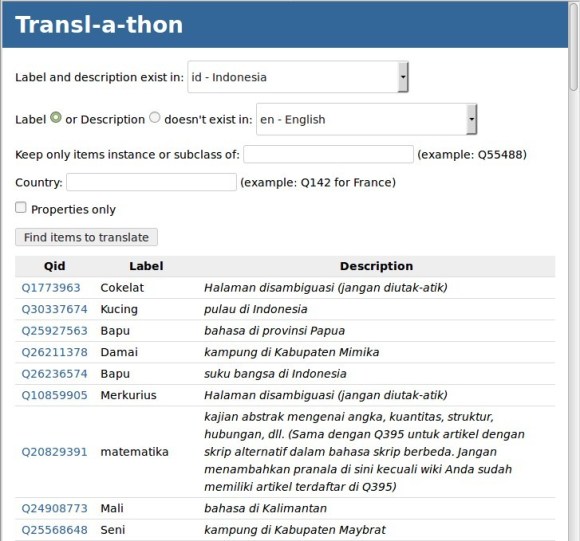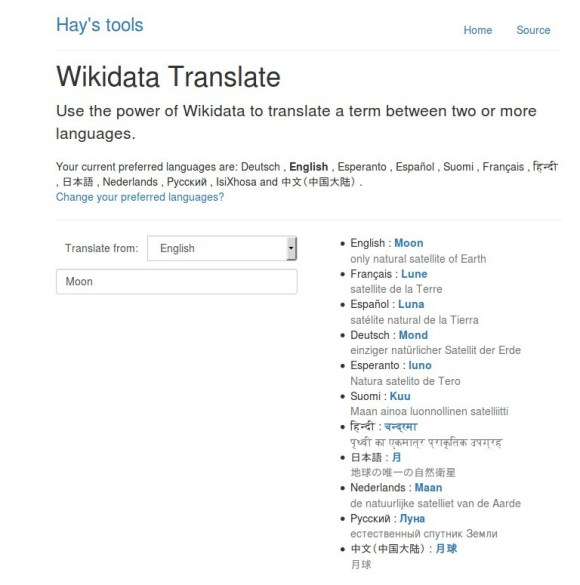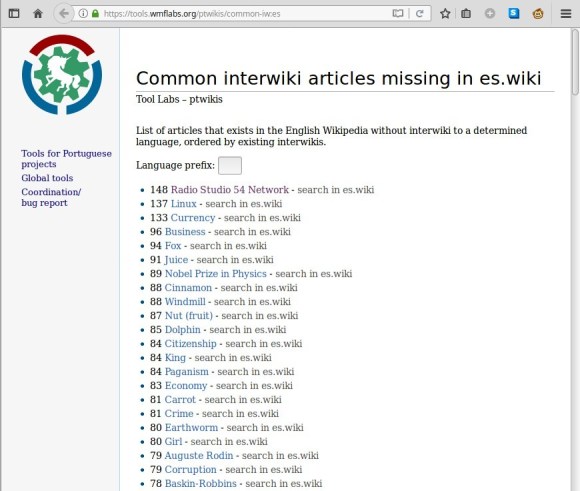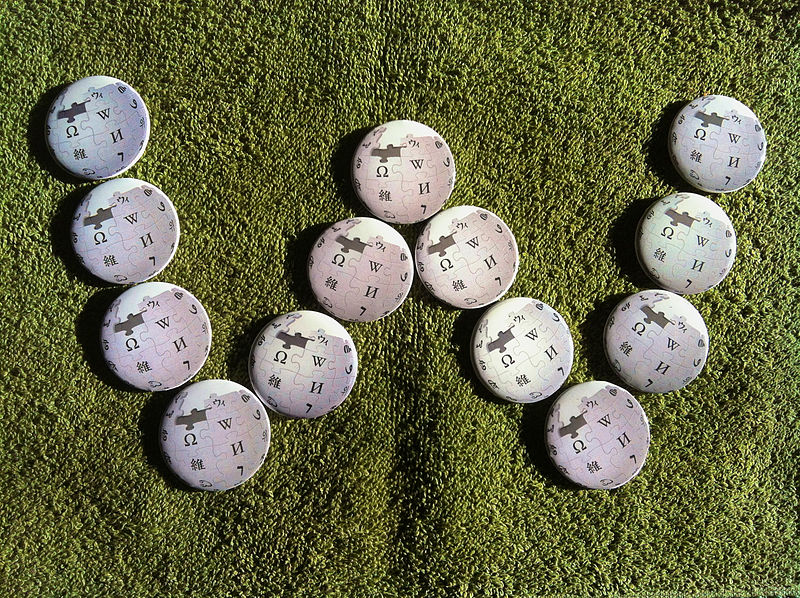Wikimedia is a massively multilingual set of projects, and there are many ways to get involved. Did you know you can help us build—and translate—this content, and make more knowledge available to more people? You can, and there are many tools available to help you either create content, or work in or across more than one language. Here are a few of the most prominent:
- Content translation: This tool helps you translate a Wikipedia article in the same edit window as the original article and automates many of the steps: it copies text across browser tabs, looks for corresponding links and categories, etc. By providing a more fluent experience, translators can spend their time creating high-quality content that reads naturally in their language. More than 250,000 articles have already been translated with this tool. You can enable the tool in your account’s Preferences. (Some language combinations have optional machine-translation integration that can help to start the work on each paragraph, but if that is used then you will need to revise the text to make sure it is accurate and clear.)
- Not in the other language: This tool finds Wikidata items that have a page in one language, but not in the other. You can (optionally) restrict the search to a specific category, or to a list from the “PagePile” tool. For example, you can search for “Pages in the Italian Wikipedia, within the category ‘Featured articles’, that do not have a page in the English Wikipedia”. This helps editors to find topic-specific (or other criteria-specific) articles to translate.
- GapFinder: This tool also helps you to find pages in one language, that do not yet exist in another language. You can search for a specific existing page, to get related recommendations. For example, you can search for “hominidae” to find various articles related to that page.
- Wikipedia Page Translation: This tool finds all equivalent links from an existing article, within the target language. For example, if you were using the French Wikipedia’s article about “La Femme au miroir (Titien)” to update the English Wikipedia’s article “Woman with a Mirror“, you could use this tool to find all the equivalent English links.
- Transl-a-thon: This tool searches for Wikidata items that have a Label or Description in one language, but not in the other language. For example, you can search for: “Items that have a Label in Indonesian, but not in English”. You can further restrict the results to only items that have associated criteria, such as schools in Finland.
- Wikidata translate: This tool enables rapid searching for translations of a single term, in multiple languages, using the information in Wikidata.
- Common interwiki articles missing: This tool provides a list of articles that exists in the English Wikipedia without an interlanguage link to a specified language, ordered by the number of existing interlanguage links. For example, you could search for “es” (Spanish) to find out which articles have been created in the most number of other languages, but not yet created in Spanish. — Note that many of the results might be due to a closely-related title being the primary article at that wiki, e.g. “human” versus “homo sapien” for which some wikis have articles about both.
- For developers who want to enable the translation of the interfaces of their Toolforge tools, they can use either Tool Translate (translations managed on Toolforge) or Intuition (translations managed on translatewiki.net).
- … and more! There are more specialized tools available, and more being created all the time. Search the Tools Directory for all tools hosted in Toolforge, and search Hay’s Directory for some tools hosted on Toolforge and some hosted elsewhere.
Have we missed your favourite translation tool? Please leave a comment, with a link and a brief description, and we may add them to a future list.
Nick Wilson (User:Quiddity (WMF)), Community Liaison, Technical Collaboration
Wikimedia Foundation
